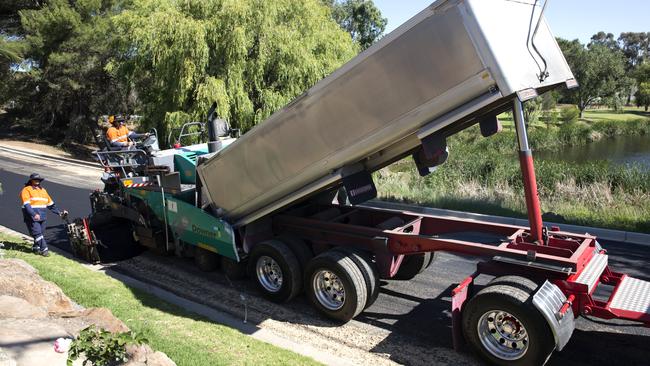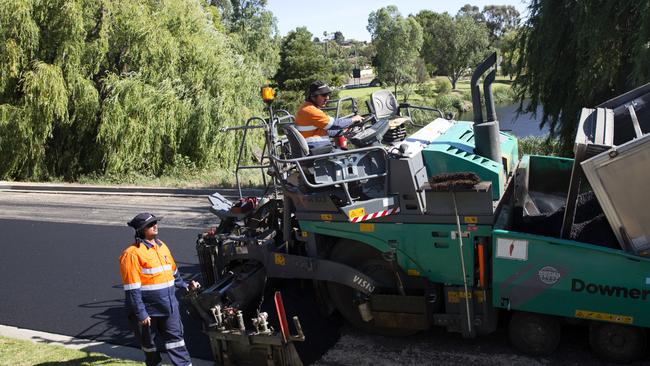SA’s first recycled road made from binned plastic and glass
Road workers laying bitumen in suburban Adelaide — not very newsy, right? But this isn’t your usual road surface.
South
Don't miss out on the headlines from South . Followed categories will be added to My News.
- $3.2m in local recycling grants to combat China Sword
- Recycling ban could cost another $1 million for southwest
- China Sword: LGA hits out at recycling rescue package
- Recycling in landfill as councils struggle with waste changes
South Australia’s first road to be constructed out of binned plastic and glass has been laid in Happy Valley.
Plastic from about 139,000 bags and packages as well as 39,750 glass bottles, toner from approximately 3200 used printer cartridges and more than 50 tonnes of recycled asphalt have been combined to create the road along Caribbean Crescent.
The new surface — a partnership between Onkaparinga Council, sustainability business Downer and recycling companies Close the Loop and RED Group — was unveiled last Thursday.
It cost $61,000 for the 265 tonnes needed to resurface the road.
Onkaparinga Mayor Erin Thompson said the project was an exciting first for the state and demonstrated the council’s commitment to working with industry on innovative and cost-effective solutions.
She said China’s new ban on importing plastic and paper had presented “significant challenges, as well as emerging opportunities” for councils.

“We collect approximately 14,000 tonnes of recyclables every year,” Mrs Thompson said.
“Creating local demand for recyclable products is one such opportunity and this is a fantastic example of what can be achieved by government working with industry.”
Downer’s road services manager Dante Cremasco said the “milestone” event showed how products that would normally end up in landfill or polluting the environment could be repurposed.
“We have set a new benchmark in the state when it comes to sustainability by creating new avenues to recycle and repurpose waste materials into new streams of use,” Mr Cremasco said.

“It’s all about pulling products, not pushing waste.
“Further to the direct sustainability benefits, this cost competitive road product called Reconophalt has enhanced properties of improved strength and resistance to deformation making the road last longer, and allowing it to better handle heavy vehicle traffic.”
The council said it would be closely monitoring the road surface and would look for opportunities to further use the product across its 1350km of sealed roads.


